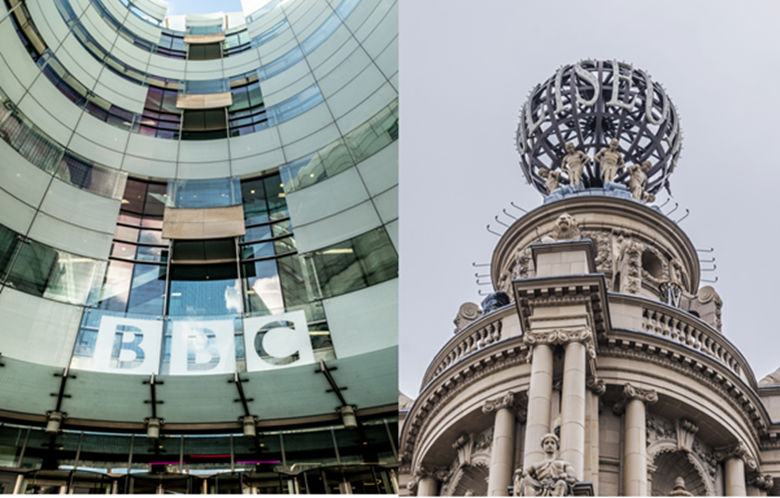The Long View | ACE and the BBC have saved nothing… except face
Andrew Mellor
Wednesday, May 3, 2023
Let’s not kid ourselves: little has changed regarding the absurd situation ENO and the BBC ensembles find themselves in

If this feels like a time to breathe a sigh of relief, I’m sorry to snap you out of your reverie, but it isn’t. Everywhere I look I’m seeing references to the BBC Singers having been ‘saved’ and to the BBC having ‘reversed’ its decision to axe the ensemble.
I get why: it’s a means of surviving the horror show that currently passes for life as a classical music professional in England. But delusion is the mother of complacency, acquiescence, and eventual defeat. We owe it to BBC musicians to recognise that the Singers have not, in fact, been saved and that the BBC hasn’t, in fact, reversed so much as pulled temporarily into a side road. A cynic might conclude that the manoeuvre was designed to allow the Singers to appear at the Royal Albert Hall this summer - a PR exercise for the corporation’s bosses who see pound signs in the Proms brand but have no understanding of its supporting ecology.
However, reading the BBC’s various cack-handed responses to this particular backfire, it’s impossible to find a promise to continue funding a full-time broadcasting choir therein. Oh, and avoiding redundancies via the non-replacement of departing musicians is not saving an orchestra - it is dismantling one slowly. As for the opaque commitment to halt the 20% reduction in salaried positions at the BBC’s English orchestras, it hardly conceals the long-term goal of finding someone else to shoulder their cost (all too familiar, in relation to the Singers) - ultimately, a death-sentence.
There is a reason why no other opera company successfully operates a huge theatre which it is mostly prevented from performing in, all from a mystery location far away.
Reimagining the BBC orchestras as centres of music education is a nice idea but an irrelevant one and will undoubtedly form the thin end of a wedge. In Salford, it already has. The current funding crisis facing the Philharmonic has its roots in 2007, when the corporation entered a hybrid funding arrangement with Salford City Council, the latter agreeing to partially fund the ensemble in exchange for serious community work. But Salford got cold feet in in 2011 - entirely predictably, for a body subject to political change and under huge financial pressures. That’s why the ensembles need the stability of BBC funding.
All this is detail. What seeps out from between the lines of the BBC’s management-speak is the sense that it doesn’t believe it has much business maintaining orchestras that exist to disseminate non-commercial music through persistent and imaginative broadcasting across multiple platforms (aka ‘public service broadcasting’). That’s a shame, as it’s the very concept that is currently saving threatened radio orchestras across Europe.
In the arena of unworkable ideas, Arts Council England has to take the gold medal. Having lost the confidence of its own brethren by threatening ENO into accepting a new identity in order to make its spending look geographically fairer, ACE has now tried to save face - not by admitting that the plan was barmy all along, but by conceding that it’s likely to cost a fortune.
Fair enough: pioneering a model that cannot be found anywhere else in the world of opera will likely prove expensive. There is a reason why no other opera company successfully operates a huge theatre which it is mostly prevented from performing in, all from a mystery location far away. It would be less tragic were ENO not being asked to perform this act of managerial contortionism and artistic ventriloquism at a time when its making things work rather well at the Coliseum.
Still, it’s apparently worth throwing a great artistic institution under the bus - along with millions in taxpayer’s money that will be swallowed up in consultancy, relocation, redundancy and recruitment fees - as long as Arts Council England doesn’t have to admit it got things wrong. I look forward to ACE’s positive spin on the dismantling of regional opera touring in the UK.
But let’s not forget what the power of our arguments has done in recent months, nor how seriously politicians from across party lines have taken them. It remains a compelling argument that, in its centenary year, the BBC can only save itself and its income by returning to its public service obligations. It’s vital for the future of ENO that the company is not allowed to be the victim of an ACE that oversteps its remit and acts with poor governance and apparently no accountability. We should see Glyndebourne return to the road and Welsh National Opera able to meaningfully serve the west of England again. Our good argumentation led the BBC and Arts Council to admit that the optics of their decisions, at least, were lamentable. If we keep up the pressure, can we force them to admit rather more?









